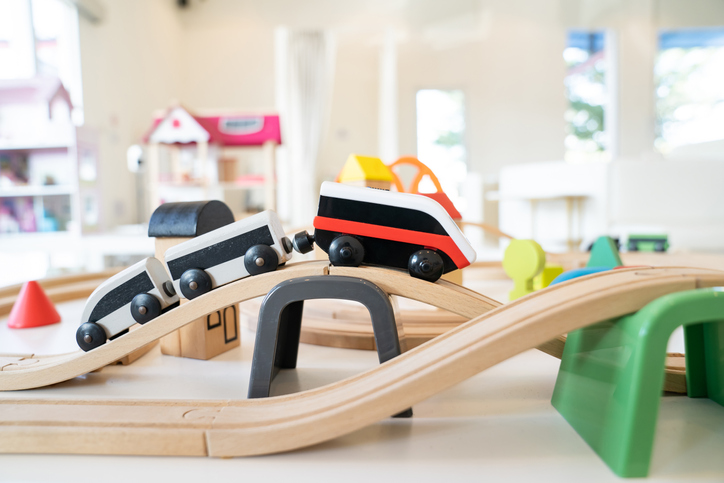2023 A&R changes will make the QIP more important than ever – here’s one approach

The Australian Children’s Education and Care Quality Authority (ACECQA) on behalf of all governments, recently published this information sheet on making quality assessment and rating more effective. From 2023, there will be refinements to some quality assessment and rating processes.
A reduced notice period and a greater focus on the quality improvement plan (QIP) (or Self Assessment Working Document in NSW) are core elements of the changes, with ACECQA saying the QIP “is designed to be a dynamic, evolving document that enables continuous improvement, self-assessment, and self-reflection.”
Early childhood consultant Michelle Walsh has recently been exploring ways in which services can ensure their QIP remains dynamic and interesting to view while also showcasing the depth and breadth of their practice and pedagogy, using a simple and accessible tool already available in many services – Powerpoint.
Michelle’s PowerQIPing approach was born when she recognised that the QIP was a pain point for many services, with leaders feeling frustrated, and like it was their responsibility alone to maintain.
Using her lived experience as a former authorised officer, she knew there had to be a better way to QIP, particularly when she reflected on her own experiences of reading “the same QIP multiple times” all presented in the same format and template, with long screeds of text copied and pasted from other documents.
When reviewing QIPs ahead of her “mock assessment” visits offered as part of her consultancy role, she also noticed a tendency for many service providers to focus on the negative aspects of the things they needed to improve using statements like “we miss too many opportunities” or “our programming in the Kindy room isn’t up to date.”
Despite this, when visiting services, what she saw was quite the opposite… great visuals on display showcasing practice, staff who are engaging with children, strong connections to the community, and lots of happy children!
“QIPs should not only reflect what’s happening in the service accurately,” she said, “but they should also energise and inspire the team. Rather than focusing on what’s not going well, the QIP should show off all the amazing things happening in the service, and demonstrate how the service will continue to improve on them, in the pursuit of quality.”
Using a two hour training session and follow up consultancy, Michelle and her team work with teams to embed video, link out to examples of policy, program and practice, and use visual engagement to make their QIPs a dynamic and evolving document which grows with the service and which supports teams to work smarter – not harder.
One example may be using a video from the services website to introduce the service to new employees, parents, family members and also authorised officers. A link to the video, or the video itself, can be embedded in the QIP, allowing one short piece of footage to serve multiple purposes.
“PowerQIPing is also about empowering service providers to see the QIP as a working document which grows with them, and which is as adaptable and unique as they are.”
Multiple team members can work on the QIP, each one bringing their own talents to the table. Those who may not be so good with words may be happy to be filmed to demonstrate practice, or may like to use their graphic design or IT skills to improve the look and feel of the QIP.
In outside school hours care (OSHC) settings, many PowerQIPers have allowed the older students to have access to the QIP to embed their perspectives, and utilise their learnings about Powerpoint, which many include in their school work, to show what makes their service special.
“This method of delivering the QIP means the philosophy, practice and pedagogy of the service is available in a visually appealing and interactive way,” Michelle said.
Having now been through multiple “real life” trials of A&R, the PowerQIP process has been celebrated by authorised officers, who have commented on how nice it is to see something different, and what a pleasure it is to have access to a QIP which so clearly demonstrates the day to day running of the service.
To learn more about PowerQIPing, please visit the website here, or email Michelle at [email protected]
Popular

Quality
Practice
Provider
Research
Workforce
Honouring the quiet magic of early childhood
2025-07-11 09:15:00
by Fiona Alston

Workforce
Policy
Quality
Practice
Provider
Research
The silent oath: Why child protection is personal for every educator
2025-07-17 09:00:31
by Fiona Alston

Practice
Provider
Quality
Research
Embedding cultural safety and responsiveness to strengthen belonging in early childhood education
2025-07-14 13:21:23
by Contributed Content











